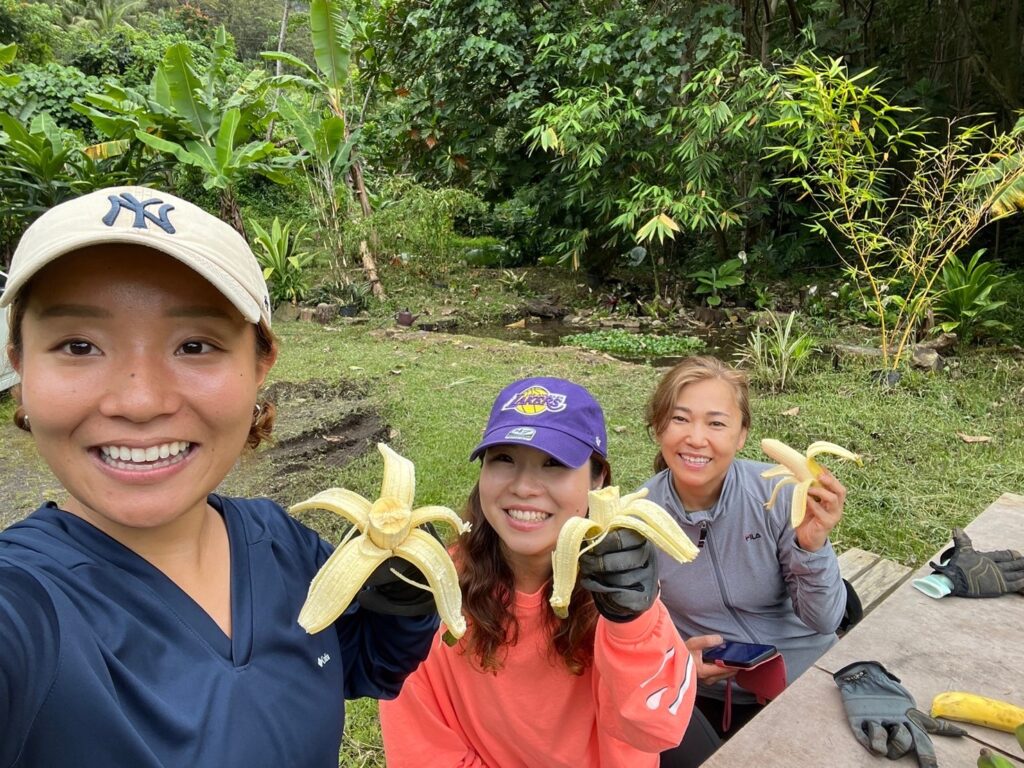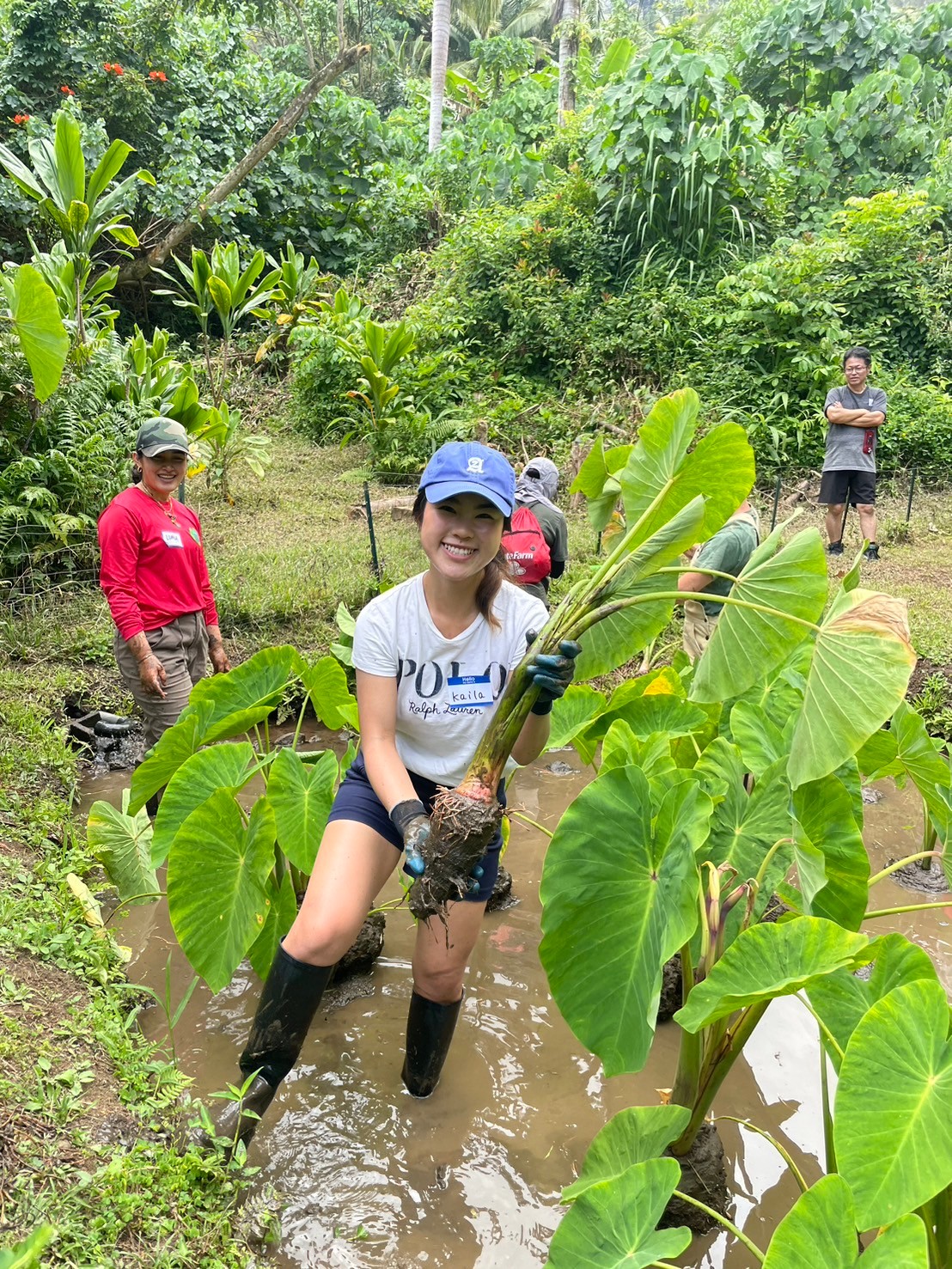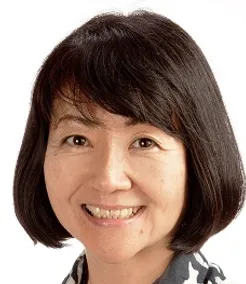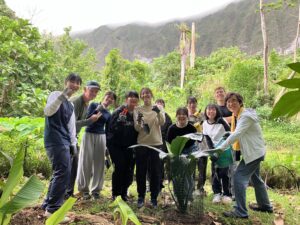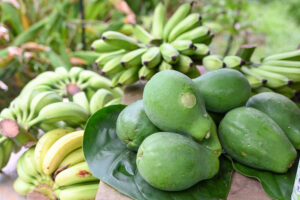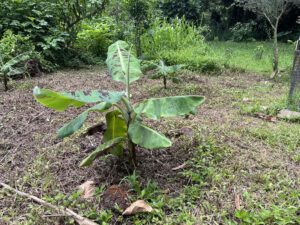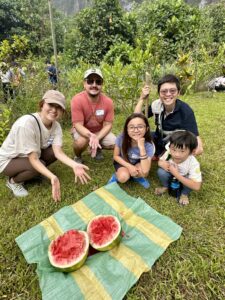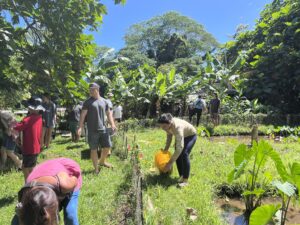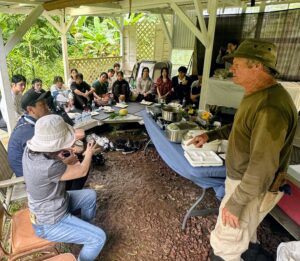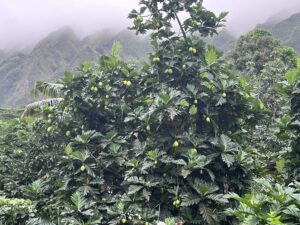Second Nature Farm holds harvest events for its members at the turn of the seasons four times a year: vernal equinox, summer solstice, autumnal equinox, and winter solstice. We cook healthy dishes with gifts from the earth that can be harvested at those times of the year and serve them at a potluck luncheon table.
At the June 15 Summer Solstice event, many participants dipped into the mud of the Kalo (taro) paddy for the first time to try their hand at harvesting taro. First, Kyle and Luana, volunteers in the taro paddies, taught the participants how to pull out the potatoes. They also explained simply about our natural agriculture method, including how to divide the pulled corms into edible ones and the rest to perpetuate generations of taro, how to lead the flow of spring water from the mountains into the taro paddies, and how to return the nourishing water to a stream in the farm to the ocean.
At the following potluck luncheon, the participants were introduced to some of our farm’s original recipes, including Indian-style sag paneer (spinach curry) with taro leaves and taro croquettes. They enjoyed the new recipes with the food and beverages they brought, filling their stomachs and hearts.
Bananas are also abundant this year. Even before the Summer Solstice Festival, we have been finding banana trees of Williams and Apple bananas that are turning color in sequence and sharing them with our farm members and volunteers. Most of the people who watched breathlessly as Gary manually harvested the bananas were surprised to learn for the first time that a banana tree’s life ends when it is harvested. However, they felt happy to discover that the trees’ trunks and leaves are put to good use for vegetable gardens and that small new shoots are beginning to sprout from the sides of the fallen trees.
Thus, at Second Nature Farm, nature plays the leading role, and humans play supporting and instrumental roles. We hope to repeatedly and perpetually perform the drama of taro and bananas’ lives on the stage of the natural ecosystem here.
